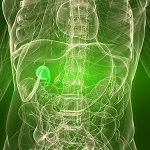The gallbladder is a small organ that is under the liver that aids digestion and holds bile produced by the liver. Bile is a digestive juice, which functions to break down dietary fats. When complications occurs in the gall bladder it affects our whole body system.
The common disorder in the gallbladder is the formation of gallstones. It is the solidified excess cholesterol in bile. Aside from gallstones, gallbladder rupture and sphincter constrictions are known as prominent gallbladder diseases. Other disorders may include infections and inflammation of the organ that results to pain experienced by the patients. CT scan, sonography and ERCP are some techniques that are used to diagnose gallbladder diseases.
 There are already numerous forms of natural treatment and oral medicines that are advised to treat gallbladder problems but in many cases, removal of the gallbladder is unavoidable.Cholecystectomy is the process of removing the gall bladder by way of surgery. There are two popular ways to remove the gall bladder; Laparoscopic cholecystectomy which is done through a number of small incisions through the skin to extract the bladder or the Open surgery (laparotomy) which the gall bladder is accessed through a wider abdominal incision.
There are already numerous forms of natural treatment and oral medicines that are advised to treat gallbladder problems but in many cases, removal of the gallbladder is unavoidable.Cholecystectomy is the process of removing the gall bladder by way of surgery. There are two popular ways to remove the gall bladder; Laparoscopic cholecystectomy which is done through a number of small incisions through the skin to extract the bladder or the Open surgery (laparotomy) which the gall bladder is accessed through a wider abdominal incision.
Though surgical removal already has benefited many patients, certain complications are still possible to occur.
Well, here are some complications that a patient may suffer from a gallbladder removal surgery.A patient might experience problems in bowel movement or Diarrhea. A bile duct injury that can also lead to abdominal pain. Bile leak, infections, internal bleeding, injury to the digestive system or blood vessel injuries are also possible due to the removal surgery.
Patients should always be aware of the gall bladder removal complications before undergoing a removal surgery. One must follow all instructions given by the doctor before and after the surgery for faster healing. A balanced diet should also be followed to cope with the changes due to the gall bladder removal.